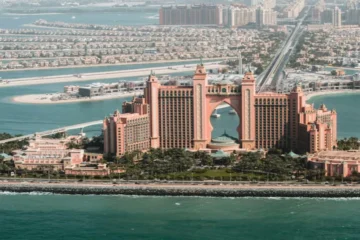Malaysia has emerged as one of Southeast Asia’s most dynamic economies, drawing professionals from across the world for its booming industries, modern infrastructure, and cost-effective lifestyle. For many foreign workers, it’s not just a place to build a career but a potential long-term home. Yet, while Malaysia welcomes skilled professionals, gaining permanent residency (PR) through a work visa is not as straightforward as in many Western countries. Understanding how the system works and what long-term residence options exist is crucial for anyone planning to settle here.
Key Takeaways
How Malaysia’s Work Visa System Operates
Malaysia doesn’t have a single “work visa” but instead issues several types of employment passes under its immigration framework. These passes allow foreign nationals to live and work in the country legally, typically tied to specific jobs and employers.
The most common types include the Employment Pass (EP) for professionals, the Temporary Employment Pass for short-term or lower-skilled roles, and the Professional Visit Pass for foreign specialists providing services temporarily.
Also Read: How to Get Permanent Residency in Malaysia
The Employment Pass, issued to those with specialized skills or managerial roles, is the main route that can lead to long-term residence. It’s usually valid for one to five years, depending on the employment contract, and can be renewed as long as the holder remains with an approved employer.
Eligibility for a Malaysian Work Visa
To qualify for an Employment Pass, the applicant must have a confirmed job offer from a company registered with the Expatriate Services Division (ESD) or another approving agency, such as MDEC (for the digital sector). The job position must be one that cannot easily be filled by a Malaysian citizen.
Applicants must typically meet minimum salary thresholds currently around RM 5,000 to RM 10,000 per month, depending on the employment category. Educational qualifications, professional experience, and a clean record are essential. The employer is responsible for applying on behalf of the foreign worker, and once approved, the applicant receives authorization to enter Malaysia and collects the pass upon arrival.
Does a Work Visa Lead Directly to Permanent Residency?
Here’s where Malaysia differs from many countries. Holding an Employment Pass for several years does not automatically qualify someone for PR. The country’s permanent residency is reserved for individuals who have demonstrated long-term contributions to Malaysia’s economy and society.
Typically, a foreign professional must live in Malaysia for a minimum of five years under a valid Employment Pass before becoming eligible to apply for PR. However, meeting the minimum period does not guarantee approval; the decision is discretionary and depends on several qualitative factors such as employment stability, tax contributions, social integration, and character assessment.
How to Apply for Permanent Residency in Malaysia
Applications for PR are handled by the Immigration Department of Malaysia under the Immigration Act 1959/63. The applicant must submit proof of continuous legal residence, a valid passport, tax payment records, a letter of good conduct, and letters of recommendation from Malaysian sponsors or employers.

Malaysia offers PR through a few main categories:
- Highly skilled professionals with outstanding achievements in their fields.
- Investors who bring substantial capital into the country.
- Spouses of Malaysian citizens (after ten years of marriage and residence).
- Long-term residents with strong economic or social ties.
Once the application is submitted, the review process can take several years. If approved, the applicant receives a Red Identity Card (MyPR), which grants the right to live and work in Malaysia indefinitely without employer sponsorship.
Common Challenges in the Process
Many foreign professionals find the PR route in Malaysia challenging due to its selective nature. Unlike countries with clear time-based pathways, Malaysia’s decision-making process considers personal and economic factors more heavily than just years of residence.
A common mistake is assuming that simply holding an Employment Pass long enough ensures eligibility. In reality, consistent employment, strong tax compliance, and positive contributions to the Malaysian economy carry more weight. Missing tax filings, frequent employer changes, or short gaps in residence can weaken an application.
Additionally, processing delays are common, and communication with immigration authorities can be slow. Applicants often need persistence and patience throughout the process.
Why Consider Permanent Residency in Malaysia
Despite its difficulty, securing PR status in Malaysia comes with valuable benefits. Permanent residents can work and live freely without needing an Employment Pass, purchase property under local conditions, and access long-term banking and investment privileges that foreigners often cannot.
Also Read: China Launches K Visa for Tech Talent: What You Need to Know
Malaysia’s location also makes it a practical base for professionals who work across the Asia-Pacific region. With lower living costs, strong healthcare infrastructure, and a diverse cultural environment, many expatriates find it a rewarding place to establish roots, even if the process takes time.
Conclusion
Gaining permanent residency in Malaysia through a work visa is possible, but it’s far from automatic. The system rewards professionals who demonstrate genuine commitment to the country through stable employment, legal compliance, and economic contribution. While it may require more patience than in other destinations, the rewards are worth it for those looking to make Malaysia their long-term home.
In essence, Malaysia’s work visa can open the door to permanent residency, but only those who prove their lasting value and connection to the country can walk through it.
Reference: https://www.imi.gov.my/index.php/en/main-services/pass/residence-pass/





